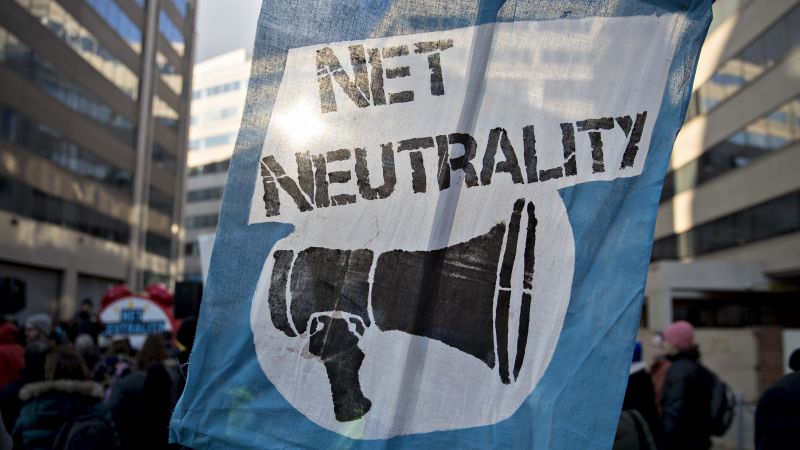The US government has reinstated tough net neutrality rules that prohibit internet service providers from interfering with the speeds of their customers’ internet traffic. These regulations were adopted by the Federal Communications Commission (FCC) with a 3-2 Democratic majority, setting the stage for a legal battle with the broadband industry. The rules reflect those passed by the FCC in 2015 and revoked in 2017, showing a move to assert authority over an industry impacting various aspects of modern life, from education to healthcare and advanced technologies like artificial intelligence.
By redefining internet service as similar to legacy telephone lines, the FCC now has more regulatory power over the broadband industry. They have also stated their intention to override any state or local policies that conflict with the federal net neutrality rule. This reclassification of ISPs under Title II of the agency’s congressional charter is believed to provide clearer authority for the FCC to adopt future rules governing public safety, national security, and issues like spam robotexts, internet outages, digital privacy, and expanding high-speed internet access.
FCC Chairwoman Jessica Rosenworcel emphasized that the vote would prevent internet providers from selling personal data or sharing it with tech companies for training artificial intelligence models. This move has been hailed as benefiting consumers, public safety, national security, and network investment. Consumer advocates have long argued for net neutrality rules to ensure all websites are treated equally, preventing ISPs from charging extra fees for faster delivery. The broadband industry claims there is no risk of this happening and that consumers would protest any such action, stating that there was no content-based network manipulation during the period when net neutrality rules were not in effect.
The broadband industry has criticized the reimplementation of net neutrality rules, with some arguing that it is unnecessary regulation that could hinder network investments. Critics within the FCC, particularly Republican commissioners, have described the move as a power grab and unnecessary government intervention in the thriving internet ecosystem. In the face of anticipated legal challenges to the rules, the outcome of a potential court battle could have important implications for federal regulatory powers, especially as courts seem to be increasingly questioning the reach of federal executive authority.
The oscillating policies for network providers in the US over the past decade highlight the political nature of internet regulation and the ongoing battle between regulators and industry stakeholders. While the broadband industry believes that consumers are protected and net neutrality rules are unnecessary, consumer advocates argue that strong regulations are needed to prevent ISPs from exploiting their power. The legal battle that is likely to ensue over the FCC’s reinstated net neutrality rules could have significant implications for future regulatory efforts by various US government bodies.















